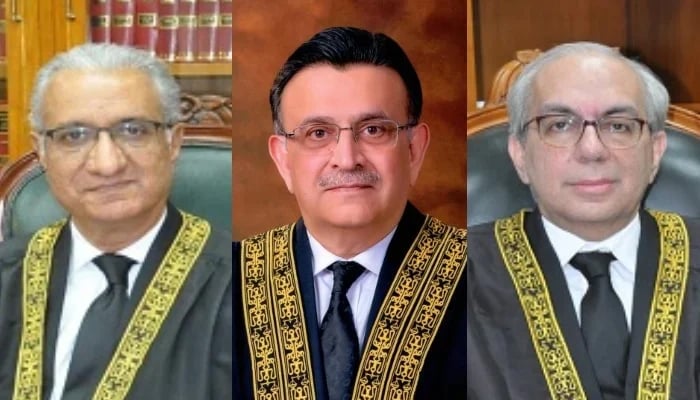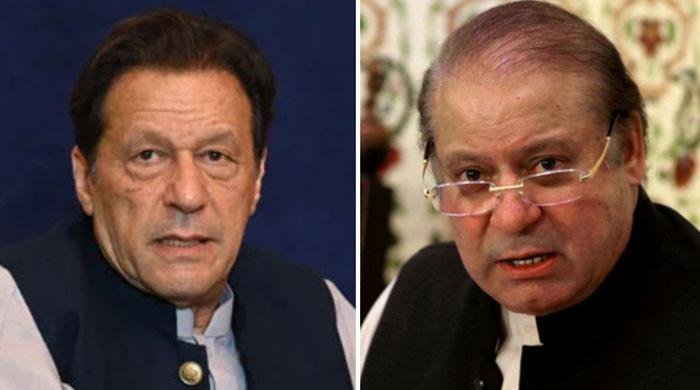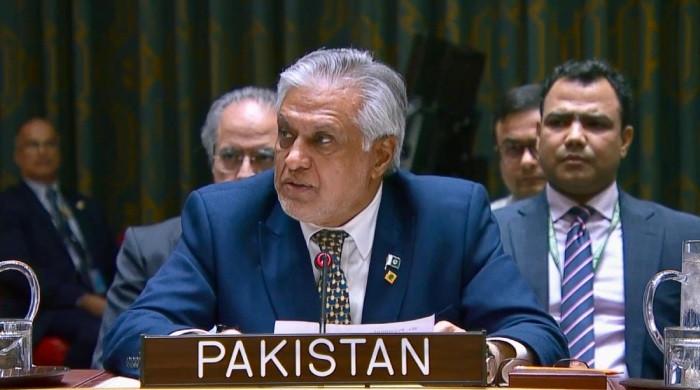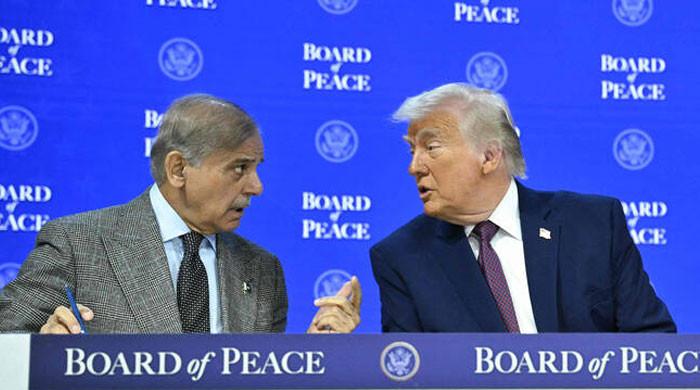SC laws to enable petitioners to fully convince court: AGP
SC welcomes "any remedy" against cases taken up under Article 184(3), but it should be done with caution: CJ
June 17, 2023

- AGP's experience in litigations would assist in the matter, says CJP.
- Law, widening scope will enable petitioners to convince court, says AGP.
- He says enlarged bench not to disclude judges who first heard case.
ISLAMABAD: Chief Justice of Pakistan Umar Ata Bandial said Friday that the Supreme Court welcomes "any remedy" against the cases taken up under Article 184(3) of the Constitution, provided it is done with caution and with the advice of the Attorney General for Pakistan (AGP).
He added that the AGP's experience in litigations would assist in the matter.
The CJP's remarks came during the hearing of the petitions, challenging the vires of the Supreme Court (Review of Judgments and Orders) Act 2023.
The petitions were heard by a three-member bench of the apex court headed by Chief Justice Bandial and comprising Justice Ijazul Ahsan and Justice Munib Akhtar.
Ghulam Mohiuddin, Zaman Khan Vardak and the Jurists Foundation, through its CEO Riaz Hanif Rahi, had challenged the vires of the Supreme Court (Review of Judgments and Orders) 2023.
Continuing his arguments in favour of the act, Attorney General for Pakistan (AGP) Mansoor Usman Awan submitted that due to the limited scope of review jurisdiction, most of the persons affected in the judgments under Article 184(3) were reluctant to file review petitions.
He further informed the bench that enacting the review of judgments law and widening the scope of the review would enable the petitioners to convince the court fully.
“When a high court decides a case, there are other appellate forums, including the intracourt appeal,” the AGP argued, “even the SC could be approached against a high court’s decision”.
“However, when the SC decides a case under Article 184 (3), then is it the first judicial forum,” he said, stressing the need for the possibility of filing a review plea.
To facilitate the petitioners, the Supreme Court (Review of Judgments and Orders) Act 2013 has widened the scope of review so that the litigants can fully convince the court in cases filed under Article 184(3) of the Constitution.
Referring to the enlargement of benches hearing the review matters under the review of judgments law, the AGP submitted that the enlargement of the bench under the law does not mean it would exclude the judges who originally heard the case.
“If a three-member bench makes a decision, then two more judges will hear the case alongside them in the review,” he said.
During the hearing, the AGP cited an example of the Indian Supreme Court judgment, delivered in 2002, pertaining to curative petitions.
He submitted that in the instant judgment, the Indian Supreme Court had held that ensuring justice is no less important than the finality of a decision.
The AGP submitted that the verdict had also held that absolute justice is God’s desire.
Justice Akhtar, however, observed that a review is still a review and was not granted the status of an appeal.
The chief justice, however, observed that a complete test of justice lay before the apex court, adding that the Indian law also stated the same.
He further observed that in the appeal, a case is heard once again; hence they ought to resolve this issue.
The AGP recalled that the right of appeal was also given against the decisions of the Election Commission of Pakistan (ECP), as well as the treason case.
Justice Akhtar, however, observed: "In all these cases, the right of appeal was there, but here in this law under challenge, you also talk about converting the review into an appeal."
The CJP wondered whether a review could be merged with an appeal as he expressed reservations about the newly introduced Supreme Court (Review of Judgments and Orders) Act 2023.
“Some grounds should be added for reviewing the judgments given under Article 184 (3) of the Constitution,” the chief justice said, “otherwise, that would mean rehearing the case.”
The chief justice observed that the government could enact any law which provides an effective remedy in case of the apex court’s decisions, but the problem lies with the method and manner of enacting the law.
He said changes should have been made through a constitutional amendment, not ordinary law.
During the hearing, Sajeel Shehryar Swati, counsel for the ECP, submitted before the court that he also wanted to present his arguments.
The chief justice, however, responded that the court was hearing the learned Attorney General on the petitions, challenging the vires of the Supreme Court (Review of Judgments and Orders) Act 2023, not hearing the ECP review petition.
“We have invited you to the proceedings as a guest”, the chief justice told the ECP counsel in a lighter tone.
The bench then adjourned the hearing until Monday (June 19).











